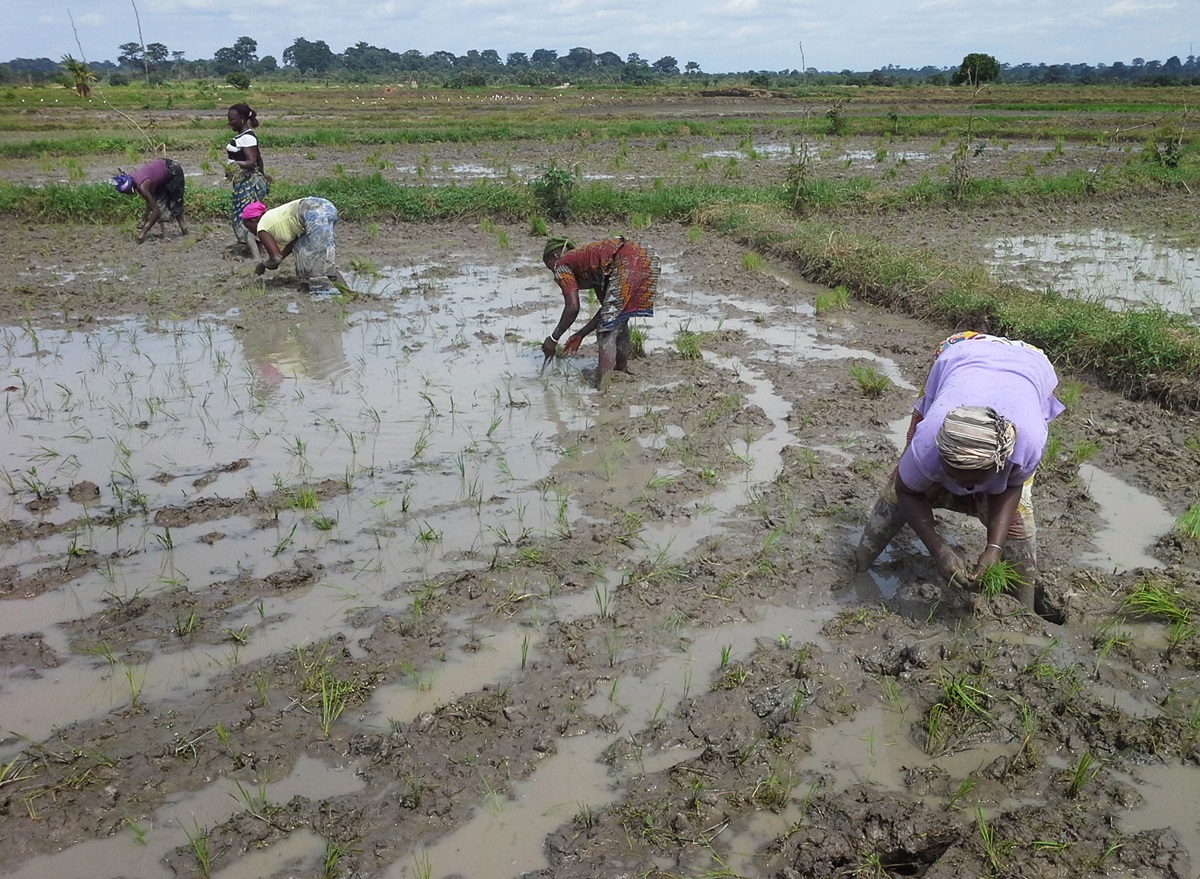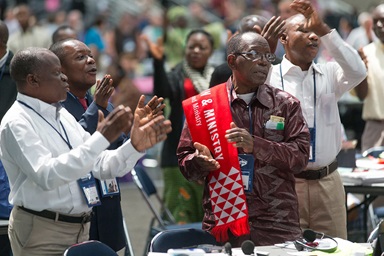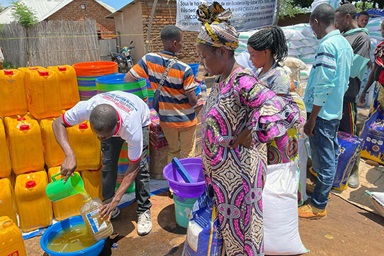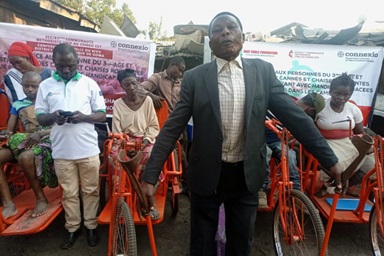The Côte d’Ivoire Episcopal Area has made progress toward a holistic approach to agriculture involving women and youths, church leaders say.
In a message broadcast at the United Methodist Board of Global Ministries/United Methodist Committee on Relief agricultural summit in January, Bishop Benjamin Boni said the whole country has fertile soils and the majority of the population is involved in farming.
The episcopal area is continuing its theme of “The Church and Food Security” in 2019 with a focus on identifying which land is suitable for particular crops and engaging women and young adults who were previously not involved in commercial agriculture.
How to help
Donations can be made to UMCOR’s Sustainable Development Advance #3021951.
“We have not been condemned by God. We are not inferior to other people. We have to erase the thought that we have nothing. God has given us so much,” Boni said.
“We have to engage all unemployed youths, especially those with degrees and diplomas, and assist them to get into crop farming and fisheries.”
UMCOR currently supports 200 women in a rice farming project in the country. Rice is a staple crop and Boni is encouraging more people to grow it.
“About 90 percent of the rice that is consumed in Côte d’Ivoire is imported, which was the impetus for this project,” said Lorrie King, WASH/Food Security/Livelihoods programs manager for UMCOR. “Bishop Boni has been very forward thinking in his vision for being able to build community agriculture and mainstream business elements.
“If the church can utilize its land to forward rice production, it can have a three-fold impact: raising the household incomes and increasing the food security of the women and their families; increasing and contributing to the local economy; and further allowing the church to generate business income and fill part of the market demand,” King said.
Yves Joël Dirabou, an agronomist with 18 years’ experience, said agriculture provides 50 percent of the jobs in the country.
“Everyone benefits from agriculture production, including those who are not Christians. It is an important tool for evangelism,” he said.
Produce from United Methodist projects has Scripture messages printed on the packaging, providing an evangelism tool.
Dirabou said 300 people were involved in the first pilot project managed by the episcopal area. Districts have their own farming ventures.
“We realized it was important to coordinate the different ventures in the conference so a special agency for agriculture was set up three years ago,” he said.
Dirabou coordinates the agency. He’s also a director in the National Office of Rice Development, a consultant for the Food and Agriculture Organization, and a member of The Continental Investment Plan for accelerating Rice Self-Sufficiency in Africa.
“We had a slow start and first focused on mobilizing the youth. We gave them funding for small small-farming projects,” he said.
During the second year, the agency concentrated on engaging women, and last year, the whole church became involved.
“This first agriculture summit was a good idea,” Dirabou said. “There can be no development without gathering and sharing ideas and concepts. At the summit, I realized other episcopal areas have similar initiatives and also got inspiration in new ideas.
“The summit was a call to action for the church to take leadership in the production of goods and services made in Africa. The continent should be a producer, not just a consumer,” he said.
“The United Methodist Church has a role and responsibility to produce disciples who transform agriculture.”
While the church has made great strides in embracing inclusivity in agriculture, women and orphans are disadvantaged when it comes to land ownership, said the Rev. Patrice Obro. The church is advocating for land ownership for these vulnerable groups.
“As ambassadors for peace and food for the world, can we remain insensitive to the situation of the economically weak?” he asked.
“In Côte d’Ivoire, customary law does not easily grant women and orphans access to land. A woman may only keep land transferred from her father during his lifetime if she farms and develops it. If she doesn’t, the land may be taken over by some crooked brothers, uncles or cousins,” said Obro, who has an agricultural background with training in farming and animal husbandry.
He said in cases of conflict over land, the traditional justice system often rules in favor of men, but the government public prosecutor recognizes gender equality.
“The case is similar to orphans whose guardianship is entrusted to an uncle. He inherits the property but does not care about their lives or their future,” Obro said.
“As a church we are united to overcome injustice and bring peace and food security. Only courage and action will enable us to emerge victorious from our struggle.”
Chikwanah is a communicator of the Zimbabwe East Conference.
News media contact: Vicki Brown at (615) 742-5470 or newsdesk@umnews.org. To read more United Methodist news, subscribe to the free Daily or Weekly Digests.
Like what you're reading? Support the ministry of UM News! Your support ensures the latest denominational news, dynamic stories and informative articles will continue to connect our global community. Make a tax-deductible donation at ResourceUMC.org/GiveUMCom.




